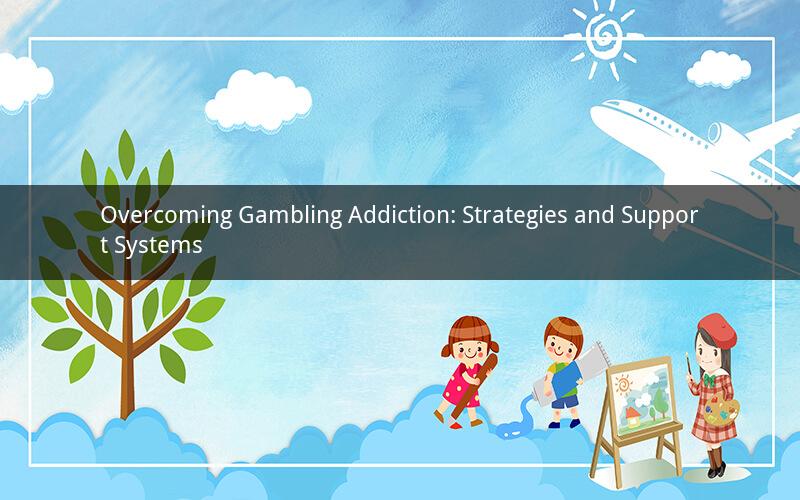
Gambling addiction, often referred to as problem gambling, is a complex condition that affects individuals across the globe. It involves an uncontrollable urge to gamble, leading to significant negative consequences in various aspects of life, including finances, relationships, and mental health. Understanding what to do for gambling addiction is crucial in addressing this issue effectively. This article delves into the causes, symptoms, and treatments available for gambling addiction, aiming to provide insights into overcoming this condition.
Causes of Gambling Addiction
The development of gambling addiction can be attributed to a variety of factors, including genetic predisposition, environmental influences, and personal vulnerabilities. Here are some common causes:
1. Genetic Factors: Research indicates that genetics play a role in the development of gambling addiction. Individuals with a family history of addiction may be more susceptible to developing gambling problems.
2. Environmental Influences: Exposure to gambling opportunities, such as casinos or online platforms, can increase the likelihood of developing a gambling addiction. Peer pressure and social environments that normalize gambling can also contribute to the problem.
3. Personal Vulnerabilities: Individuals with certain personality traits, such as thrill-seeking or impulsivity, may be more prone to developing gambling addiction. Additionally, those with pre-existing mental health conditions, like depression or anxiety, may turn to gambling as a coping mechanism.
Symptoms of Gambling Addiction
Identifying the symptoms of gambling addiction is essential for seeking appropriate treatment. Common symptoms include:
1. Preoccupation with gambling: Experiencing constant thoughts about gambling, even when not engaged in the activity.
2. Needing to increase the stakes: Feeling a strong urge to increase the amount of money or time spent gambling to achieve the same level of excitement.
3. Loss of control: Inability to stop gambling, despite negative consequences.
4. Lying to hide gambling behavior: Concealing the extent of gambling activities from family, friends, or employers.
5. Compulsive gambling: Engaging in gambling activities despite the knowledge of the adverse effects on one's life.
Treatment for Gambling Addiction
Several treatment options are available for individuals struggling with gambling addiction. These include:
1. Cognitive-behavioral therapy (CBT): CBT helps individuals identify and change negative thought patterns and behaviors associated with gambling addiction.
2. Support groups: Joining a support group, such as Gamblers Anonymous, can provide individuals with a sense of community and shared experiences, making it easier to overcome addiction.
3. Medications: Certain medications, like naltrexone, may be prescribed to help reduce cravings and the urge to gamble.
4. Inpatient and outpatient treatment programs: These programs offer comprehensive treatment, including therapy, support groups, and education about gambling addiction.
5. Financial counseling: Addressing the financial consequences of gambling addiction is essential in recovery. Financial counseling can help individuals develop a budget and manage their finances more effectively.
Support Systems for Overcoming Gambling Addiction
Support from family, friends, and professionals is crucial in overcoming gambling addiction. Here are some ways to build a strong support system:
1. Seek professional help: Therapists, counselors, and addiction specialists can provide guidance and support throughout the recovery process.
2. Inform trusted individuals: Share your struggles with close friends and family members who can offer emotional support and hold you accountable.
3. Join a support group: Engaging with others who share similar experiences can provide comfort, advice, and a sense of community.
4. Establish boundaries: Set clear boundaries with friends and family to ensure they understand the importance of your recovery journey.
5. Practice self-care: Engaging in activities that promote mental, emotional, and physical well-being can help maintain a healthy balance during recovery.
Questions and Answers
1. What is the most effective treatment for gambling addiction?
Answer: The most effective treatment for gambling addiction varies depending on the individual. A combination of cognitive-behavioral therapy (CBT), support groups, and financial counseling is often recommended.
2. Can gambling addiction be cured?
Answer: While there is no guaranteed cure for gambling addiction, it can be effectively managed through proper treatment and support.
3. How can I tell if someone I know has a gambling addiction?
Answer: Look for signs such as preoccupation with gambling, lying about gambling activities, increased financial problems, and changes in relationships.
4. Are there any medications available for treating gambling addiction?
Answer: Yes, certain medications, such as naltrexone, may be prescribed to help reduce cravings and the urge to gamble.
5. How long does it take to recover from gambling addiction?
Answer: Recovery from gambling addiction is a lifelong process. While some individuals may experience significant improvement within a few months, others may require ongoing support and treatment for years.